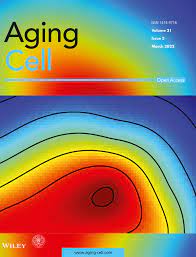A journal regarded as the leader in its field is without editors after they resigned as a group earlier this month in a dispute over their workload and compensation.
On August 11, the four editors-in-chief of Aging Cell tendered their resignations to Wiley and the Anatomical Society, which together publish the monthly periodical. Explaining their decision in a letter dated August 23 and posted to Twitter by an account unrelated to the journal, the editors – Peter Adams, Julie Andersen, Adam Antobi, Vera Gorbunova, along with John Sedivy, the reviews editor – said they had reached the breaking point after trying to work with the publishers for the last “2-3 years” on “serious issues in running the journal.”
We were unable to immediately reach the editors or Wiley, but Adams retweeted the letter and asked his followers to “Please distribute.”
Many of those problems, the editors wrote, involved fallout from a steep increase in workload as the journal’s stature has risen. According to the letter, the journal handled 874 papers in 2021; by early August 2022 alone, that figure was 540 – or an estimated 950 for the year. The group writes that they were “flooded with submissions” after the journal’s Impact Factor grew, but does not provide data on the number of submissions before 2021.
One solution was to pay the volunteer section editors “based on the number of manuscripts they handle.” That fix, according to the group, was ignored, with a counter-offer of relying instead on ‘early career’ scientists.
Meanwhile, the editors-in-chief said they were still being paid for their time at a rate set in 2006: 2,000 GBP, or about $2,619, per year.
The letter also points out that Wiley eliminated the editors’ “modest” budget to travel to meetings in 2022 – an important part of the job, they said – because they missed the deadline to apply for the funds last year.
According to the letter:
As noted at the beginning of this letter, we have reached an impasse with the Anatomical Society and Wiley. There has simply been no meaningful or considered response to our requests. Thus, in good faith we felt the proper thing to do was to resign. We were hopeful that this would convey the seriousness of our concerns, solicit a good faith response, and that Humpty Dumpty could somehow be put back together again.
The move came a few weeks before the Biden White House announced yesterday that all federally funded research would need to be published open access, which some observers have predicted could harm small scientific societies that often rely on subscriptions that are part of membership instead of article processing charges.
In the end, the editors wrote, their mission and the publishers’ goals were too far apart:
Unfortunately, our common interests are not shared by Wiley and the Anatomical Society, who are driven largely by profit. They would be happy to publish more papers (and make more profit) even at the cost of bringing down the Impact Factor. Over the years we have steadily resisted this, which might in part explain why they are quite willing to be rid of us.
Like Retraction Watch? You can make a tax-deductible contribution to support our work, follow us on Twitter, like us on Facebook, add us to your RSS reader, or subscribe to our daily digest. If you find a retraction that’s not in our database, you can let us know here. For comments or feedback, email us at [email protected].
